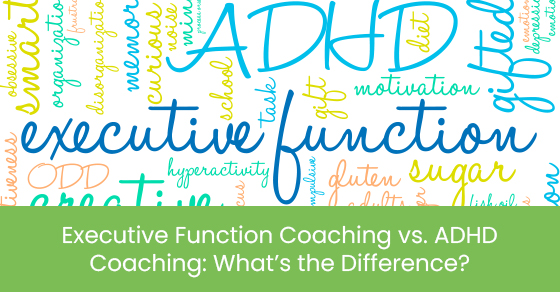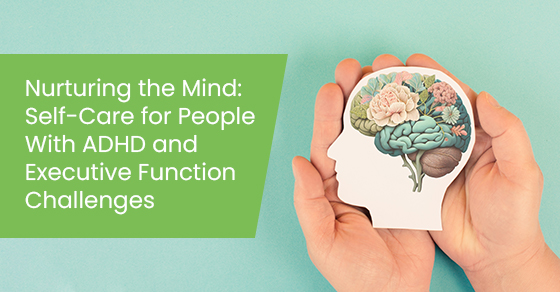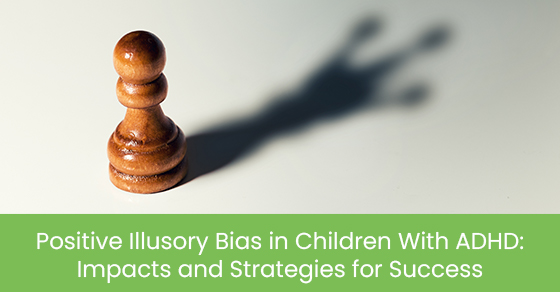In today’s fast-moving world, individuals of all ages encounter challenges with managing their time, staying organized, and maintaining focus. Two approaches that have emerged to address these issues include executive function coaching and ADHD coaching. While they share some similarities, they cater to distinct needs and employ unique strategies to enhance an individual’s cognitive abilities and overall well-being. Let’s delve into the differences between these two coaching methodologies, explore the tactics and strategies coaches employ, and highlight the benefits these approaches offer.
Understanding Executive Function Coaching
Executive function refers to a set of cognitive skills responsible for managing our thoughts, actions, and emotions. It plays a pivotal role in goal setting, planning, problem-solving, time management, initiation, and organization. Executive function coaching primarily targets people who struggle with these cognitive skills, whether or not they have a diagnosed disorder.
Tactics and Strategies Used by Executive Function Coaches
Goal Setting
Coaches collaborate with their clients to set specific, measurable, achievable, relevant, and time-bound (SMART) goals. By breaking down larger objectives into manageable tasks, clients can develop a sense of accomplishment and stay motivated. This helps clients gain clarity and focus on what they want to achieve. Regular goal evaluation promotes progress-tracking and self-awareness.
Time Management
Coaches employ various time management techniques such as creating daily schedules, utilizing to-do lists, and implementing time-blocking strategies. These tools help individuals stay on track and minimize distractions, enhancing productivity and reducing procrastination. These tactics also improve punctuality and efficiency in completing tasks.
Organizational Strategies
Coaches work with clients to develop personalized organizational systems. This includes decluttering physical spaces, establishing file systems, and utilizing digital tools like calendars and task managers. These efforts help reduce the stress associated with disorganization and help enable clients to locate and access information quickly.
Prioritization Techniques
Executive function coaches teach clients how to prioritize tasks based on importance and deadlines. They emphasize focusing on critical tasks first to maximize productivity. This results in better decision-making when tackling assignments and helps people feel less overwhelmed by their workload.
Exploring ADHD Coaching
ADHD coaching, on the other hand, is specifically tailored to individuals diagnosed with attention deficit hyperactivity disorder, a neurodevelopmental condition characterized by symptoms like inattention, impulsivity, and hyperactivity. ADHD coaching aims to address the unique challenges clients face in their daily lives.
Tactics and Strategies Used by ADHD Coaches
Mindfulness and Meditation
ADHD coaching often incorporates mindfulness and meditation practices to help clients improve focus, manage impulses, and cultivate self-awareness. This increases their ability to sustain attention on tasks, cultivates better emotional regulation, and reduces impulsivity.
Task Breakdown
Coaches assist clients in breaking down complex tasks into smaller, more manageable steps. This approach helps people overcome feelings of being overwhelmed and encourages a structured approach to completing tasks. Outcomes include improved task initiation and completion rates and a greater sense of accomplishment and self-esteem.
Visual Aids and Reminders
ADHD coaches may use visual aids, such as charts, calendars, graphs, and sticky notes, to serve as reminders and prompts for important activities and routines. These enhance memory retention and recall and reduce the likelihood of forgetting important tasks or deadlines.
Accountability Systems
Coaches implement accountability systems to encourage consistent progress. This could involve regular check-ins, progress reports, or rewards for meeting specific goals. The benefits include improved adherence to routines and schedules and the reinforcement of positive behaviors and habits.
Recognizing the Overlapping Strategies
While executive function coaching and ADHD coaching have distinct emphasis, there are overlapping strategies that benefit individuals with executive function challenges or ADHD.
Strength-Based Approaches
Both coaching methodologies leverage a strength-based approach to build on the client’s existing skills and talents. This encourages individuals to recognize their strengths, fostering a sense of empowerment and confidence.
Cognitive-Behavioural Techniques
Cognitive-behavioural strategies, such as cognitive restructuring and reframing negative thoughts, are used by both coaches to help clients manage their emotions and develop healthier habits.
Self-Regulation and Emotional Management
Both coaching approaches aim to enhance self-regulation and emotional management, promoting resilience and adaptability in the face of challenges.
To summarize, executive function coaching and ADHD coaching are distinct yet complementary approaches that cater to individuals with different cognitive needs. Executive function coaching targets a broader audience dealing with challenges related to organization, time management, and goal setting. In contrast, ADHD coaching is tailored specifically for individuals diagnosed with ADHD and focuses on addressing their unique symptoms of inattention, impulsivity, and hyperactivity.
Both coaching methods employ an array of tactics and strategies to enhance cognitive abilities and overall well-being. The use of goal setting, time management techniques, organizational strategies, mindfulness, and accountability systems can significantly improve an individual’s life, leading to better productivity, better focus, reduced stress, and enhanced emotional well-being.
Ultimately, the choice between executive function coaching and ADHD coaching depends on a person’s specific needs and circumstances. These coaching approaches, when implemented effectively, can make a substantial difference in empowering individuals to navigate life’s challenges, reach their full potential, and lead fulfilling, successful lives.
Evoke Coaching
At Evoke Learning, we provide students with the tools they need to achieve their academic and personal goals. Our coaches understand the biological underpinnings of ADHD, the core symptoms, and their comorbidity with executive dysfunction. ADHD/executive function coaching addresses the academic, emotional, and interpersonal difficulties resulting from these symptoms and helps students find ways to overcome them. Through individualized support, coaches help students concentrate on where they are now, where they want to be, and how to get there. Students can better realize their goals with a strong plan and regular check-ins to extend accountability.
Consistent Communication and Personalized Guidance
Efforts made by students between coaching sessions are as important as the work completed alongside their coach. Inter-session check-ins serve as an opportunity for students to engage in self-reflection and take decisive action. These check-ins encourage adherence to established plans, promote weekly goal setting, and assist students in pinpointing barriers that hinder the achievement of their objectives.
By offering personalized guidance, our coaches empower students to focus on their present situation, envision their desired outcomes, and formulate effective strategies to reach those milestones. This tailored approach facilitates the coach’s commitment to understanding each student’s unique needs, ensuring a supportive learning environment that fosters growth and progress.
Collaborative and Goal-Oriented Approach to Coaching
Our coaches employ a collaborative and goal-oriented approach, ensuring that students actively participate in their learning process. This personalized approach enables the development of practical, research-informed skills and strategies tailored to each student’s unique needs and aspirations. By working in close partnership with students, our coaches foster an environment of mutual trust, open communication, and shared responsibility.
To ensure progress toward identified objectives, our coaches establish a well-defined plan that outlines the steps necessary to achieve each goal. Regular check-ins provide opportunities to track progress, address challenges, and fine-tune strategies. This ongoing support and accountability are key to empowering students to take ownership of their learning journey and build the self-efficacy needed for long-term success.
Through this dynamic coaching process, students improve their academic performance and develop critical life skills, such as time management, goal setting, and problem-solving. Our coaches are dedicated to cultivating these abilities, empowering students to become confident, self-directed learners equipped to navigate the challenges of education and beyond. Contact us to learn more about how our coaching services can help you meet your goals.



